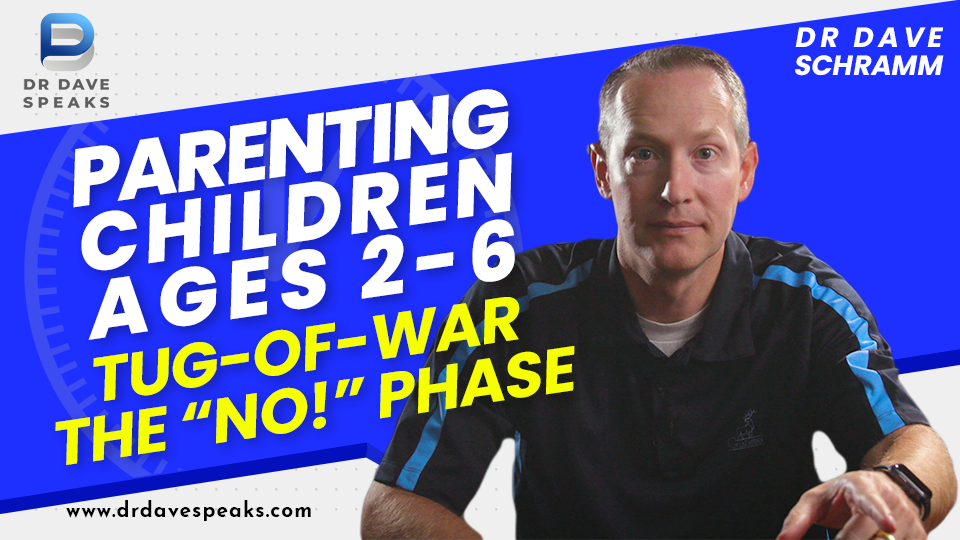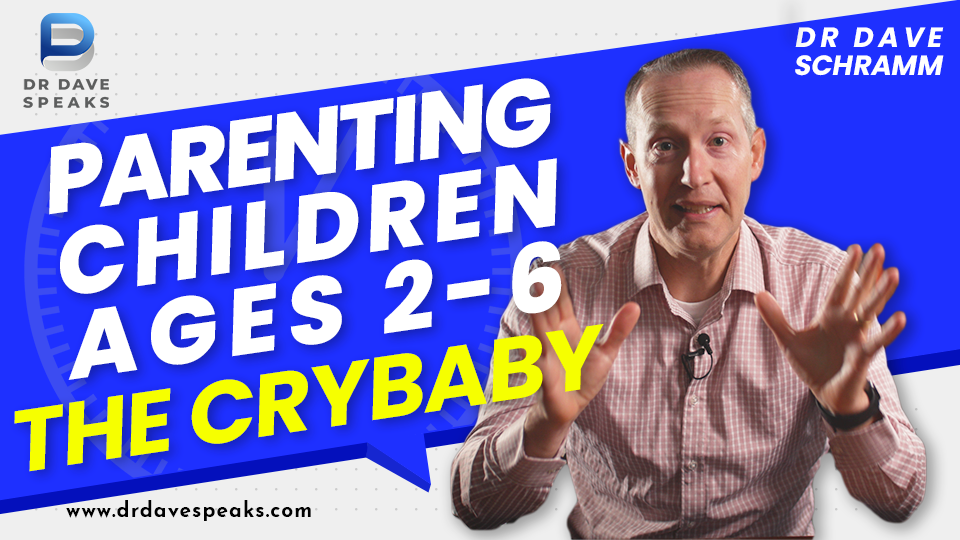Search the blog data base by keyword or topic:

5 Easy Ways to Make Reading Fun & Effective for Kids Ages 2–6
Did you know reading together builds more than just literacy—it strengthens your child’s brain and bonds too? Dr. Dave Schramm offers five simple strategies: invite your child to participate, bring stories to life with fun voices and actions, embrace favorite books, explore libraries and cozy reading spaces, and make reading a daily habit. It’s a joyful way to grow connection and learning.

When My Child Hits: Gentle Strategies for Ages 2–6
It’s common—and totally normal—for children ages 2–6 to hit when emotions run high. Dr. Dave Schramm walks parents through five thoughtful steps: see the situation from your child’s perspective, prevent triggers, act without shaming, help them calm down, and gently teach kindness. With grace and good boundaries, even tough moments become opportunities for connection and growth.
Consider this, how we respond rather than react will make all the difference.
1. Look at things from your child’s point of view and remember that it’s a process to learn better behaviors;
2. Prevent problems when possible;
3. Take action without insult;
4. Help your child calm down and feel safe; and
5. Teach and show your child how to be kind.

The Power of Play for Kids Ages 2–6: Simple Ways to Connect and Grow
Even a few minutes of play with your child can be transformative. In this post, Dr. Dave Schramm shares quick, heart-building ideas—like making time to play undistracted, inviting your child to help with small tasks, and suggesting fun, shared activities. These moments foster connection, teach social skills, and lay the foundation for meaningful relationships.

Using the Parenting Pyramid: Build Connection Before Teaching & Correction
Rather than defaulting to discipline, the Parenting Pyramid encourages us to ask: 'How can I help things go right?' Dr. Dave Schramm explains how effective parenting builds from the bottom up—starting with personal well-being, through couple and parent–child connection, then teaching, and finally correction. When our relationships and teaching are strong, correction becomes a natural extension, not the centerpiece.

Suicide Warning Signs & Risk Factors: What Educators and Parents Must Know
About 80% of students show clear warning signs before a suicide attempt, and nearly 90% have identifiable risk factors like depression or substance challenges. In this critical post, Dr. Dave Schramm emphasizes how educators and parents can spot persistent behavioral changes—such as withdrawal, mood shifts, or academic decline—and take safe, trust-building steps to listen, connect, and act. Because noticing and asking, 'Are you OK?' can save a life.

Establishing Rules for Kids Ages 2–6: Kind, Consistent & Effective Parenting
One of the most frustrating parenting challenges? Making rules that no one seems to follow. In this post, Dr. Dave Schramm shows how simple clarity, consistency, and gentle follow-through can make all the difference: prioritize a few essential rules, enforce them with kindness, and keep the big picture in mind. Over time, these steps build trust, cooperation, and lasting connection.

Navigating the ‘No’ Phase: Gentle Parenting Strategies for Ages 2–6
Frustrated by toddler “no” after “no”? In this post, Dr. Dave Schramm reframes this resistance as a bid for independence, not defiance. He offers empathetic strategies—like validating feelings, offering safe choices (“Carrots or grapes?”), and engaging playful problem-solving—to preserve connection while guiding behavior. With patience and creativity, the “tug-of-war” can become a bridge to cooperation, not conflict.

Surviving the ‘My Way’ Phase: Nurturing Independence in Kids Ages 2–6
Around age two, toddlers begin asserting autonomy with phrases like ‘I can do it myself!’ While this growing independence can feel exhausting for parents, it’s a sign of healthy development. Dr. Dave Schramm offers practical tips to support your child’s self-expression while maintaining connection—making this bold, boundary-testing phase a chance to strengthen trust and confidence.

Parenting the Crying Toddler: Calm Strategies for Ages 2–6
Babies crying a lot can feel overwhelming—but it's totally normal. In this post, Dr. Dave Schramm reassures parents that crying is your child's way of asking for help, not a sign of failure. He shares practical, compassionate tips—from comforting techniques to simple troubleshooting—that nurture secure attachment and calm the chaos in early parenting.

Helping Babies Learn to Talk: 5 Key Ways to Support Cooing & Babbling | Part 1
Babies aren’t just making cute noises—they’re actively trying to talk. Dr. Dave shares five simple yet powerful ways to support your baby’s early communication—like making eye contact, turning distractions down, and engaging in gentle back-and-forth cooing. These little interactions send rich signals in your child’s developing brain and lay the foundation for lifelong connection and language development.

Expert Parenting Advice: Proven Tips from 400+ Parents and Empty Nesters
Parenting can be challenging, especially without formal training. In this post, Dr. Dave shares tips, advice, and proven techniques gathered from over 400 experienced parents and empty nesters to help you navigate parenting with confidence, strengthen your family relationships, and create a more joyful home.
